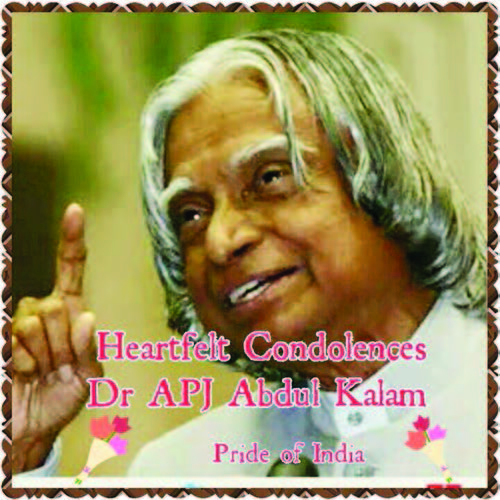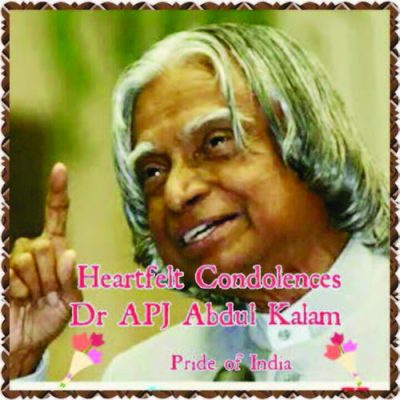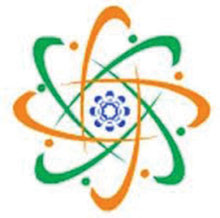

India loses a shining star of learning
By Zafar Iqbal
The GOPIO-Metropolitan Washington is very sad to learn of the passing away of Professor A. P. J. Abdul Kalam. It expresses heartfelt condolences on the demise of President Kalam.
Dr. Kalam-an extraordinary visionary and embodiment of the new India, and former President of India (2002- 2007) was affectionately known as the People’s President. He loved being a professor and sharing his knowledge with students. While delivering a lecture on “Livable Planet Earth'” at the Indian Institute of Management Shillong, he suffered a severe heart attack at around 6:30 p.m. local time. He was rushed to the Bethany Hospital in a critical condition; despite efforts to revive him, he died of cardiac arrest at 7:45 p.m. Monday, July 27, 2015. He was born on 15th October 1931 in Rameswaram, Tamil Nadu.
Dr. Kalam was honored with many national and international awards, including Bharat Ratna–the highest civilian honor bestowed upon by the Government of India. Kalam’s 79th birthday was recognized as World Student Day by the United Nations. He has also received honorary doctorates from 40 universities from all over the world. He is considered the main architect of India’s nuclear program. He also contributed in the development of a low cost coronary stent, named the “Kalam-Raju Stent” with cardiologist Soma Raju and rugged tablet computer for health care in rural areas, which was named the “Kalam-Raju Tablet.” An author of more than 20 technical books, he has left a legacy that will keep his contributions remembered for a long time.
Dr. APJ Abdul Kalam was a President of Uncritical Devotion
By Stephen Gill
Dr. APJ Abdul Kalam, 11th president of India, collapsed while delivering a speech at a seminar of Indian Institute of Management in Shillong, India. He died of cardiac arrest at Bethany Hospital in the capital of Meghalaya province on July 27, 2015 in the evening.
He was born in a poor Muslim family of a boatman in a rural area of Tamilnadu, South India. It was his education and hard work which led him to success. He was selected by the BJP Government in 2002 to be the president of India not because of his politics but because of his achievements as a missile scientist. He wrote inspirational poems for children, and led a simple life. It is clear that he was a child of the multicultural nature of Indian heritage.
Dr. Kalam will be remembered for his life of a harmonious marriage between art and knowledge. His ceaseless struggle in the narrow alleys of the bumpy orbits of bigotries to raise a stage for the goddess of peace to dance has set an example. This is an uncommon phenomenon at least in India, where he
cultivated a crop of the palpitation of human groans and a glory that is the essence of more than five thousand years old culture. He was respected by the majority as well as by the minority groups. He was easily approachable by the youth.
He is rightly known as “people’s president.” At this time, when India needs a citizen of uncritical devotion, the legacy of Dr. APJ Abdul Kalam shall remain alive for a long, long time.
| (Stephen Gill is a celebrated poet and writer, based in Canada) |
India has lost a priceless jewel
The kind of man he was, who loved India with an intense passion, beyond measure, will never be born again.
By Shahnaz Husain
It seems like the end of an era……Dr Abdul Kalam, President of India, from 2002 till 2007, also known as the Missile Man, is no more. India has lost yet another precious jewel, who dedicated his life to his country. We all know how he rose from a simple childhood to be one of India’s greatest minds and occupy the highest position of President of India……and yet, he never lost his humility.

The news of his passing evoked memories of the times I had met him. What struck me most was his simplicity. I remember the day when I received the Padma Shri Award from President Abdul Kalam at the Rashtrapati Bhavan. It was an added honour for me to receive it from the Missile Man. He congratulated me for the work I was doing in my effort to popularise India’s ancient Ayurvedic heritage. He said, “You are doing great work but you must document it.” The next time when I met him was at Rashtrapati Bhavan, when he was kind enough to launch my book, “Absolute Beauty.” Surprisingly, he remembered and said “Have you started documenting your work?”
Dr. Kalam was so right when he said, “You have to dream before your dreams can come true.” He also said, “Excellence is a continuous process and not an accident.” These struck a real chord within me, because I know how true and profound his sayings are. They will inspire generations to come.
Indeed, Dr. Abdul Kalam will always be remembered for his phenomenal mind and also as a great human being. The void he has left in the world of science and in our hearts will never be filled. Today, let us celebrate his love for India and his humble brilliance.
Down the Memory Lane
By Prof. I.S. Saluja
In March, 2008, Dr. APJ Abdul Kalam visited New York. The PIO & NRI Community of Greater New York was exultant and keen to see him, speak with him and honor him, in whatever way they could. I was one of them. I spoke with Lal Motwani, who had organized a function to honor Dr. Kalam, to get me a few minutes with one of the best known scientists of India. The most popular epithet that stuck Dr. Kalam was “the Missile Man of India”.
Well, Lal did not disappoint me. I began with my questions and Dr. Kalam, as quick as a missile, answered them. When I asked him about his idea of “India by 2020”, he seemed to travel far, probably in to future, having his vision of India in 2020, and then turned to me and said, “It means perfect vision; 20/20 is the best vision”.
It was a long talk. He talked about his passion for teaching. H said he always wanted to return to teaching after his term as President. He spoke at length about his experiments in education in Tamil Nadu which had given miraculous results, with the consequence that not only the illiteracy rate went down but also young people aspired to go in for college and university education. He said he had faith in the youth of India. While he said that he added, rather proudly, that India was a nation of the young people and they are going to transform the country. The power of education and the strength of the young people were the two subjects that he emphasized on in my meeting with him . I did carry then the interview with him in The Indian Panorama, and with a couple of pictures, too but it makes me sad that I do not have a trace of it, since the computer crashed and all went with it.
I do not have the report that I published when he was honored by the PIO and NRI community at the Hindu Temple in Flushing, a favorite place with Indian Americans for holding cultural and social events. But from the cover of a souvenir then published, I arrived at the correct date which was March 25.






Be the first to comment